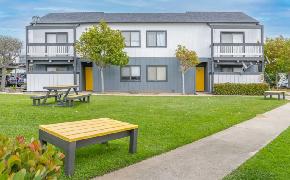NEW YORK CITY—There has been a lot of concern about the ever increasing property taxes from the real estate community with New York City‘s new mayor, Bill de Blasio. The City’s robust $70 billion budget is facing major increases from union back pay and citywide pre-kindergarten. Property taxes is one of the few places where the mayor can turn to bring in more “revenue,” especially since raising income tax on high earners is unlikely with Gov. Cuomo opposing.
According to the WSJ, although de Blasio has said he is not seeking to increase the tax rate, the City’s Department of Finance showed tax-assessment rolls are due to rise by 8% beginning in July, the second-highest gain since 1996. This shows the game that politicians play: they can say tax rates will not go up, but they will raise by virtue of increasing property assessments. For fiscal year 2015, the Citywide Market Value of properties increased 6.6% to $914.8 billion.
The real estate community has been the ATM for NYC’s budget. Between property and transfer taxes, REBNY estimates that revenue-producing properties account for 38% of the City’s budget, covering virtually every city service from the police and fire to correction agencies. The Minnesota Center for Fiscal Excellence finds that NYC commercial owners pay a ratio of almost six times what homeowners pay. The next major city, Boston, is under four.
According to a Studley report, NYC office buildings have the second highest taxes per square foot at $14.95 in 2012. Washington, DC is the highest at $15.50, which also signals concern for their market. San Francisco‘s taxes of $5.05/SF, make it seem like a more viable city. NYC’s net rent after operational expenses was the lowest in their survey at only 50%, well below San Francisco’s 65%.
Few voters may feel sorry for the wealthy landlords who pay these taxes, but they should be concerned about potential job loss. Tax increases are mostly passed along to the office and retail tenants. Office leasing brokers have said that tenants are questioning locating in NYC as they cannot budget for this unforeseen increase. NYC average building expenses can run more than the occupancy costs for office space in New Jersey.
On the residential side, real estate taxes are also hotly debated. Condo owners recently suffered a 7.4% tax increase to an average of $7,987, whereas co-ops only increased by 5.5% to $6,247. Surprisingly, single family homes only saw an increase of 3.8% to $4,598. Homes are taxed at their rent potential rather than their value. De Blasio pays $2,900 a year in taxes for his townhome valued at $1.1m.
The challenge is how to convince the voters of this inequality and concern. I have heard a very interesting idea of including the tax portion in a rent bill. Perhaps a tenant paying $2,000 for a one bedroom would grow concerned if they knew that $600 was going towards taxes. This could also get attention from a recent Class Action Lawsuit saying that minorities, who rent more than own on average, indirectly pay more taxes through rent checks than owners of condos, co-ops and single families. Maybe we have finally found a topic that tenants and landlords can agree on.

















 Copyright © 2024 ALM Global, LLC. All Rights Reserved.
Copyright © 2024 ALM Global, LLC. All Rights Reserved.